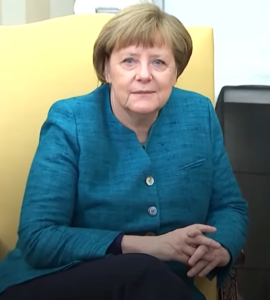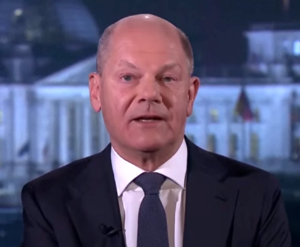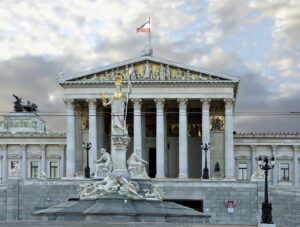Germany has seen significant leadership under two notable Chancellors who have shaped the nation’s course through pivotal moments in history.
Angela Merkel (2005-2021): Angela Merkel’s tenure as Chancellor was characterized by steady and pragmatic leadership. Serving as the first female Chancellor, Merkel navigated Germany through numerous crises with her signature calm and analytical approach. She played a crucial role in managing the Eurozone financial crisis, implementing austerity measures, and advocating for bailout packages that stabilized the European economy.

Merkel was also at the forefront during the 2015 migrant crisis, championing a welcoming stance towards refugees—a decision that sparked both support and controversy. Her influence extended to global affairs, where she stood as a prominent figure in the European Union and maintained strong transatlantic relations. Merkel’s leadership during the COVID-19 pandemic further showcased her ability to balance public health and economic stability, reinforcing her legacy as a resilient and effective leader.

Olaf Scholz (2021-present): Olaf Scholz succeeded Merkel in December 2021, ushering in a new era for Germany under the banner of the Social Democratic Party (SPD). Scholz, who previously served as Vice Chancellor and Finance Minister, brought a wealth of experience to the chancellorship. His tenure has been marked by efforts to rejuvenate the German economy post-pandemic, with a focus on digitalization, climate change initiatives, and social welfare reforms.

Scholz’s leadership faced immediate challenges, including navigating the complexities of the Russian invasion of Ukraine and Germany’s role in supporting international sanctions and humanitarian aid. As a trained lawyer, Scholz’s methodical and measured approach has been pivotal in addressing both domestic and international issues, striving to continue Germany’s legacy of stability and influence on the global stage.
As Germany looks to the future, the leadership transitions from Merkel to Scholz symbolize the nation’s adaptability and commitment to addressing the evolving challenges of the 21st century, ensuring that Germany remains a key player on the world stage.
Brief overview of the Austrian Chancellors from the past 20 years:
- Werner Faymann (2008-2016): Faymann, from the Social Democratic Party (SPÖ), served as Chancellor for two terms. His tenure saw Austria grappling with the Eurozone crisis and the migrant crisis. He resigned in 2016 amid internal party conflicts and declining popularity.
- Reinhold Mitterlehner (2016): Mitterlehner, also from the SPÖ, served as interim Chancellor for a brief period after Faymann’s resignation until the formation of a new government.
- Christian Kern (2016-2017): Kern, succeeding Mitterlehner, led the SPÖ and focused on economic reforms and social issues. His tenure was marked by efforts to address unemployment and improve public services.
- Sebastian Kurz (2017-2019): Kurz, from the Austrian People’s Party (ÖVP), became the youngest Chancellor in Austrian history at the age of 31. His government implemented strict immigration policies and focused on economic growth. Kurz’s tenure ended in 2019 following a corruption scandal.

- Brigitte Bierlein (2019-2020): Bierlein, the first female Chancellor of Austria, served as an interim leader following Kurz’s resignation. Her tenure was marked by efforts to stabilize the political landscape and prepare for new elections.
- Sebastian Kurz (2020-2021): Kurz returned to office after the 2020 elections, continuing his focus on immigration and economic policies. His second term was cut short by another corruption scandal, leading to his resignation in 2021.
- Alexander Schallenberg (2021-2022): Schallenberg, from the ÖVP, served as Chancellor following Kurz’s resignation. His tenure was brief, focusing on maintaining stability and preparing for new elections.
- Karl Nehammer (2022-present): Nehammer, also from the ÖVP, became Chancellor in 2022. His leadership has been marked by efforts to address economic challenges, social issues, and maintaining Austria’s role in the European Union.
Throughout these years, Austria has navigated significant political shifts, economic challenges, and evolving social issues. Each Chancellor’s tenure has contributed to shaping the country’s policies and responses to both internal and external pressures, reinforcing Austria’s role in the European Union and the global arena.
CDU’s Friedrich Merz aims for the chancellorship

